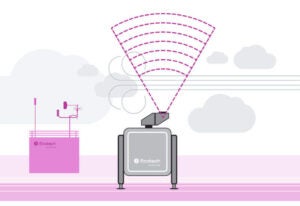Fit-for-Purpose Vehicle Keeps Complex Data Gathering Simple, Breaking Complexity Barriers
Tracking groundwater quality is important in environmental monitoring, but there are barriers to obtaining accurate readings. High quality, accurate instrumentation which can operate on hard environments is often not portable which creates challenges when ground water bores are in difficult and remote locations.
Limitations of current water profiling technology
The WA target site was near the coast, creating an environment where the groundwater has multiple layers: fresh water, sea water and potential contamination. The customer needed to measure groundwater quality at regular depth intervals. Doing so meant they could locate areas of contaminations and mixing.
Standard ground water sampling methods mix up the water column, making it impossible to measure in intervals. However, more accurate systems are not robust enough for reliable operation in harsh environments. These more accurate systems are by necessity less portable and also require generators, which can’t be used in refineries for safety reasons and they’re often fixed to a vehicle, making them immovable in cramped conditions.
Fit-for-purpose: portable groundwater profiling vehicle (PGPV)
According to ECOTECH national water services manager Paul How, the custom-designed vehicle-mounted PGPS ‘acts as a robust one-stop-shop for NATA (National Association of Testing Authorities) accredited data gathering in-situ onsite’. The winching system (pictured below) is fitted with a sonde instrument probe to reach depths of 100m and measures water quality at 1cm intervals. It can also be adapted to descend up to 500m and be fitted with a variety of other monitoring and sampling technologies.
A wastewater storage tank, along with calibration and decontamination equipment, minimises cross-contamination and leaching. The advanced profiling equipment in the PGPS is solar powered, electric, and mounted on turntables. Turntables help make it safe and movable enough for use in cramped refinery conditions.
Innovation saves time, effort and expense
Wireless connectivity allows for immediate onsite water sampling, analysis and uploading of data. Captured data is then verified remotely at ECOTECH’s own NATA-accredited water quality laboratory in Perth to provide further validation. With the need to physically send water samples back to base for testing totally eliminated, the PGPS saves considerable time, effort and expense compared to antiquated groundwater sampling techniques it replaces.
More than just water profiling
ECOTECH predicts the innovative application of PGPS will have possibilities beyond water profiling. Paul suggests the PGPS could remove the need for hefty exploratory equipment in the gas and oil industry, and have a broad application within regulation and research.
Designing, developing and delivering the Portable Groundwater Profiling System is yet another example of ECOTECH using innovation, flexibility and commercial insight to solve complex customer problems and deliver another world-class environmental monitoring system.


